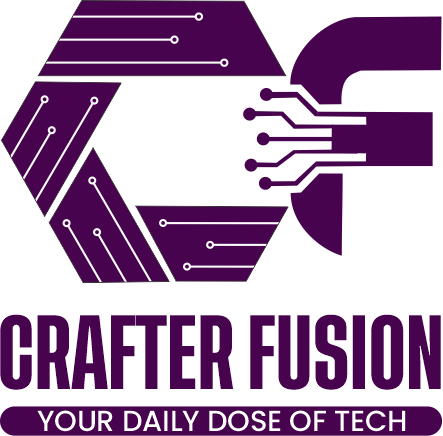Decentralized Finance (DeFi) has speedily come to be a massive deal, with over 31,091 humans mastering it. This new way of handling money is changing how we see banking and cash. It’s making transactions and cash admission less complicated for every person.
It makes use of blockchain and cryptocurrencies for direct, secure cash movements. In this manner, no want for banks or different middlemen. Since mid-2020, DeFi has grown plenty. It suggests it is geared up to shake up antique banking ways and give human beings more control over their cash.

Key Takeaways
- It is a rising peer-to-peer financial system with the usage of blockchain and cryptocurrencies
- Its goals are to put off 0.33 parties like banks, reducing expenses and transaction times
- It empowers people with direct, trustless economic transactions
- The DeFi specialization has over 31,000 rookies and high-rated courses
- Ethereum is the primary platform for maximum DeFi projects
Understanding Decentralized Finance Fundamentals
Decentralized finance, or DeFi, is changing the way we consider cash. It aims to reduce our middlemen, giving customers greater management over their price range. At its heart is blockchain technology, a steady virtual ledger that statistics and verifies transactions.
DeFi apps communicate directly to blockchains. This we could humans lend, borrow, change, and extra without having banks or other third parties.
What Makes DeFi Different from Traditional Finance
Traditional finance is based on banks and other establishments. DeFi, then again, makes use of new tech to bypass these middlemen. If we could have customers manage their money on their own, through easy-to-use apps.
Key Components of DeFi Systems
DeFi structures have smart contracts, dApps, and DEXs in their middle. Smart contracts are programs that make offers happen robotically. They make sure the entirety is honest and steady.
DApps run on blockchain networks, imparting many financial services. DEXs, like Uniswap, let humans trade cryptocurrencies directly without an intermediary.
The Role of Blockchain Technology
Blockchain is the backbone of DeFi. It makes transactions secure, open, and free from middlemen. It additionally powers smart contracts, key to DeFi’s achievement.
Today, nearly $43 billion is locked in DeFi protocols. This suggests how large and essential DeFi is becoming.

In short, DeFi is changing finance with blockchain and new apps. It gives users extra control and transparency and gives them entry to their cash. DeFi apps provide everything from simple savings to complicated financial offerings. The market for NFTs is also growing, attracting traders and collectors.
How DeFi Works in Practice
Decentralized finance (DeFi) is changing the way we consider cash. If we could humans trade directly with each other, slicing out middlemen. This method all of us with internet can be part of it, saving money and getting higher fees.
Smart contracts are at the center of DeFi. They make offers appear robotically when positive conditions are met. This cuts down on fees and accelerates transactions compared to vintage approaches.
Decentralized apps (dApps) allow users to do such things as lend, borrow, trade, and upload liquidity. Platforms like AAVE, Maker, and Uniswap make those interactions viable. They use blockchain and unique regulations like Proof of Work (PoW) and Proof of Stake (PoS) to keep things safe.
Its structures can communicate with each other thanks to layer 1 solutions. This helps construct bigger DeFi worlds. Oracles, like Chainlink, bring in actual-time records, supporting making better economic picks.
But it isn’t without risks. There’s the threat of scams, theft, excessive fees, and market ups and downs. Even so, conventional banks are starting to look at the usage of blockchain for their very own DeFi merchandise.

It’s growth indicates humans need more open and fair financial alternatives. As it receives higher, it is set to shake up the worldwide finance scene. It’s giving electricity lower back to humans and thinking vintage finance methods.
Popular DeFi Applications and Use Cases
Decentralized finance (DeFi) is changing the way we think about money. It consists of many new apps that make finance extra open and honest. From places to alternate virtual cash to systems for lending and borrowing, it gives customers greater manipulation over their cash.
Decentralized Exchanges (DEX)
Decentralized exchanges (DEXs) are a big part of DeFi. They permit human beings to exchange virtual cash without having an intermediary. Sites like Uniswap and PancakeSwap are famous for their smooth use and fair buying and selling.
Lending and Borrowing Platforms
Platforms like Compound and AAVE allow users to lend out their digital cash and earn hobbies. Borrowers can get loans using their virtual assets as collateral. These structures use clever contracts to make lending safe and clean, converting how we think about banks.
Yield Farming and Liquidity Pools
Yield farming is a big deal in DeFi. It’s approximately including liquidity for exchanges and rewards. Users positioned their virtual money into swimming pools, assisting with trades and earning fees. This encourages more people to enroll and makes DeFi more liquid.
DeFi is growing speedy, with new thoughts doping up all the time. From dealing with assets to growing new types of money, it is changing finance in huge ways.
The rise of DeFi is thanks to blockchain and smart contracts. People need offerings that can be clear, clean to apply, and fair. As DeFi grows, it’ll alternate how we take care of cash, for better and for worse.

| Defi Application | Key Features |
| Decentralized Exchanges (DEX) | Peer-to-peer cryptocurrency trading, no trusted third-party |
| Lending and Borrowing Platforms | Earn interest by lending crypto assets; access loans using digital collateral |
| Yield Farming and Liquidity Pools | Provide liquidity to DEXs and earn rewards from trading fees |
| Stablecoins | Maintain price stability in the volatile cryptocurrency market, used in various DeFi applications |
| Non-Fungible Tokens (NFTs) | Unique digital assets offer opportunities for creators and collectors within the DeFi ecosystem |
Smart Contracts: The Backbone of DeFi
Ethereum’s clever contracts have modified the DeFi global. In 2014, Vitalik Buterin built on Nick Szabo’s idea. This brought about the smart contracts we realize nowadays in DeFi. These contracts make monetary services work on blockchain, slicing out middlemen.
Smart contracts are key to DeFi, powering apps like DEXs and lending systems. Ethereum, Cardano, and Avalanche are top selections for these contracts. ERC-20 and ERC-721 tokens on Ethereum are crucial for digital currencies and NFTs. They make buying, promoting, and buying and selling on systems like Uniswap and Rarible easier.
Smart contracts aim to make transactions more obvious and steady. But they face problems like code bugs and criminal doubts. Despite these, DeFi’s clever contracts have reached $20 billion in fees. As DeFi grows, smart contracts could be more vital for its destiny.
FAQ
What is DeFi?
DeFi is a new way to do money stuff online using blockchain and crypto. It lets people deal directly with each other, skipping the middlemen. This makes things cheaper and faster.
What are the key components of DeFi systems?
It uses crypto, blockchain, and special software for financial deals. It’s all about cutting out the middlemen with new tech.
How does blockchain technology enable DeFi?
Blockchain is the heart of DeFi. It’s a safe, shared ledger that keeps track of money moves. This lets people do financial stuff on their own, without needing banks.
What are the benefits of DeFi?
It means you can do money stuff yourself, without banks. It’s easy to get into, cheap, and lets you set your rates. Plus, it’s safe and open, giving you control over your money.
What are the popular DeFi applications and use cases?
It has lots of uses, like online exchanges, lending, and even betting. It’s all about making money stuff easier and more accessible.
What is the role of smart contracts in DeFi?
Smart contracts are like automated rules for money. They make sure things happen as planned, without needing a middleman. Ethereum’s smart contracts were a big step for DeFi, making it possible to trust code to handle money.

